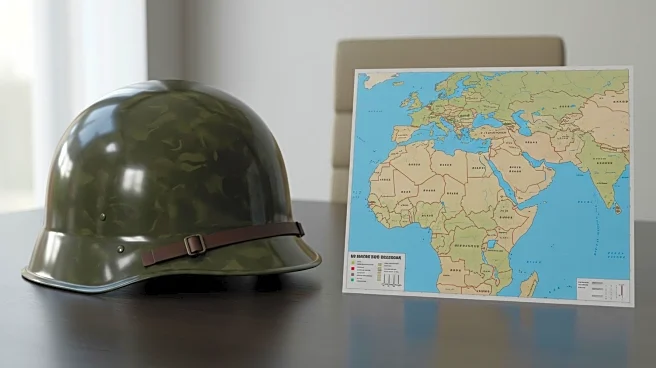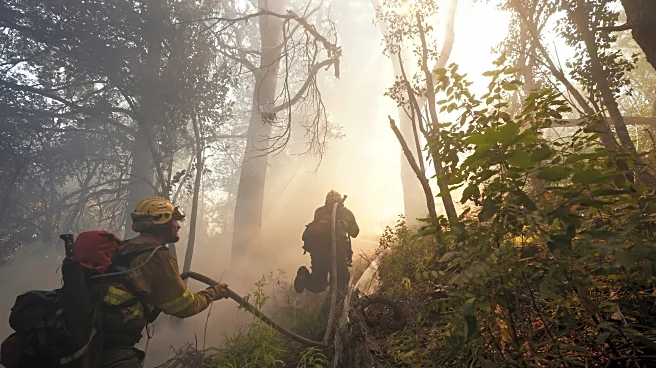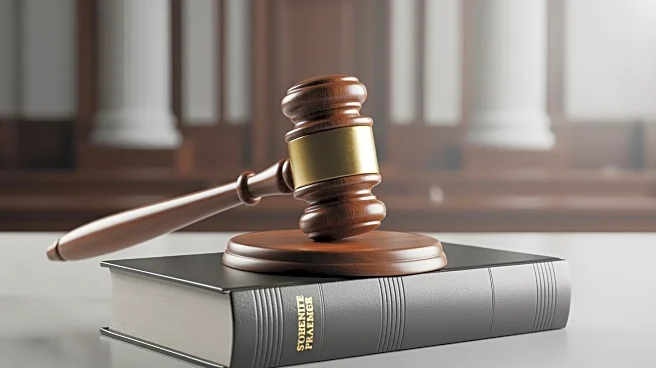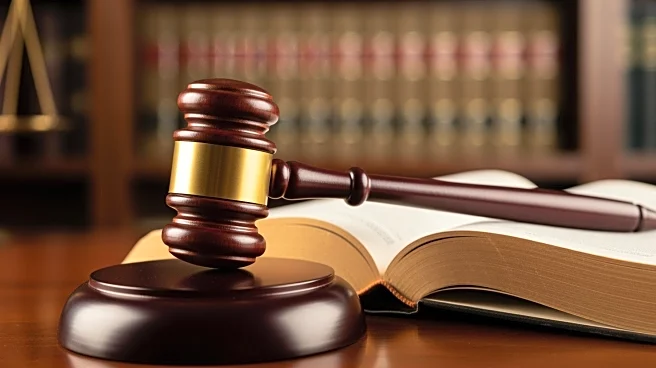What's Happening?
Israel's Defense Minister, Israel Katz, has attributed responsibility to Lebanon's President Michel Aoun for Hezbollah's military activities following an Israeli Defense Forces (IDF) strike. The IDF targeted a Hezbollah military outpost and underground infrastructure in southern Lebanon's Beaufort Ridge. This action is part of ongoing tensions between Israel and Hezbollah, a militant group based in Lebanon. The strike underscores Israel's stance on holding Lebanon accountable for Hezbollah's actions, which Israel views as violations of its security. The situation remains tense as both sides continue to engage in military operations along the border.
Why It's Important?
The attribution of responsibility to President Aoun by Israel's Defense Minister highlights the complex geopolitical dynamics in the region. Hezbollah's activities have long been a point of contention, affecting regional stability and security. This development could strain Lebanon's political landscape, as it faces pressure from both internal factions and external forces. The situation may impact U.S. foreign policy in the Middle East, as the U.S. has historically supported Israel's security concerns. Additionally, the ongoing conflict could affect international relations and peace efforts in the region, with potential implications for global oil markets and economic stability.
What's Next?
The situation may lead to increased diplomatic efforts to de-escalate tensions between Israel and Lebanon. International stakeholders, including the United Nations and the United States, might engage in dialogue to prevent further military escalation. Lebanon's government may face internal pressure to address Hezbollah's activities and navigate the political ramifications of Israel's accusations. The region's stability remains uncertain, with potential for further military actions or diplomatic interventions.
Beyond the Headlines
The ongoing conflict between Israel and Hezbollah raises ethical and legal questions regarding state sovereignty and the responsibility of governments for non-state actors. The situation also highlights the cultural and historical tensions in the region, which have persisted for decades. Long-term shifts in regional alliances and power dynamics could be triggered by these developments, affecting future peace negotiations and security arrangements.












